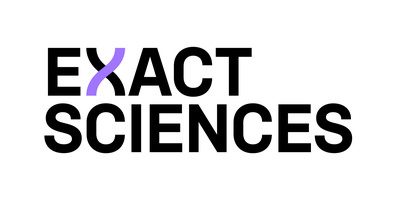Exact Sciences Expands Leadership in Colorectal Cancer Screening with New Data Presented at the American College of Gastroenterology 2022 Annual Meeting
Exact Sciences Corp. (NASDAQ: EXAS) presented new data at the ACG Annual Meeting showcasing the impact of eliminating patient costs for follow-up colonoscopies. The findings suggest that a cost-free approach could significantly increase colorectal cancer screening rates, with over 900 deaths averted per 1 million people screened. Additionally, Cologuard was highlighted for its effectiveness in detecting serrated polyps, and its role in redefining false positive outcomes in stool tests was discussed. The new evidence reinforces Cologuard as a valuable non-invasive screening option in the fight against colorectal cancer.
- New data indicates eliminating follow-up colonoscopy costs can boost screening rates.
- Cologuard shown to effectively detect serrated polyps, increasing clinical relevance.
- Study claims over 900 colorectal cancer deaths could be averted per million screened.
- None.
Data presentations include positive impact of eliminating patient cost for follow-up colonoscopies, shifting to non-invasive colorectal cancer testing, and increasing overall screening as 900 deaths averted per 1 million people screened
MADISON, Wis., Oct. 24, 2022 /PRNewswire/ -- Exact Sciences Corp. (NASDAQ: EXAS), a leading provider of cancer screening and diagnostic tests, today announced the company will present new data supporting the positive impact of Cologuard® as a colorectal cancer screening tool during the American College of Gastroenterology (ACG) Annual Meeting, being held October 21-26, 2022. For the first time, data from Exact Sciences will detail the positive impacts on patients when costs associated with follow-up colonoscopy are eliminated after a positive stool-based test. New data will also provide details on the value of Cologuard® in detecting serrated polyps, and the importance of reconsidering the definition of false positive outcomes from stool tests in CRC screening.
"Data from Exact Sciences at ACG demonstrate the positive impact removing obstacles to colorectal cancer screening can have on clinical and economic outcomes associated with this highly preventable form of cancer," said Paul Limburg, MD MPH, AGAF, chief medical officer, Screening, Exact Sciences. "These results provide key information to help screen more people for colorectal cancer and support the use of Cologuard as an FDA-approved, non-invasive screening option that is included in U.S. Preventive Services Task Force guidelines."
ACG has accepted the following four abstracts for presentation at the 2022 Annual Meeting:
Lifetime Impact of the Change in Modality as a Result of Eliminating Cost-sharing for Follow-up Colonoscopy After a Positive Stool Test for Colorectal Cancer Screening
Presenter: A. Burak Ozbay, PhD, Exact Sciences
Session: Sunday, October 23, 2022; 5:00 PM – 7:00 PM ET
Abstract Number: #A0179
Key results: In Oregon, a policy that eliminated patient cost-sharing for follow-up colonoscopy significantly increased the uptake of colorectal cancer screening and shifted screening modalities from colonoscopy to non-invasive methods. The clinical and economic effects of these outcomes were estimated in a cohort of average-risk individuals, newly eligible for colorectal cancer screening. With a 10 percent shift from colonoscopy to stool-based testing and modest 5 percent uptake in total screening, life years gained increased by at least 5 percent while more than 1,200 cases and 900 deaths were averted per 1 million individuals at a lower cost.
Serrated Polyps in Patients with Positive FIT or Mt-sDNA, or Colonoscopy Only: Data from the New Hampshire Colonoscopy Registry
Presenter: Dr. Joseph Anderson, MD, MHCDS, FACG, Dartmouth College
Session: Sunday, October 23, 2022; 5:00 PM – 7:00 PM ET
Abstract Number: #A0168
Key results: Serrated polyps progress to colorectal cancer through methylation and may account for up to 30 percent of all colorectal cancers. In this registry study, patients screened with Cologuard had a higher yield of serrated polyps found during colonoscopy than those screened with a FIT test or colonoscopy alone. When stratified by large adenomas, 18 percent of the Cologuard-positive patients had clinically relevant serrated polyps compared to 10 percent for FIT and 8 percent for colonoscopy patients. A regression model showed that the Cologuard-positive patients were nearly 3 times as likely to have clinically relevant serrated polyps than colonoscopy patients.
What Do 'False-Positive' Stool Tests Really Mean? Data from the New Hampshire Colonoscopy Registry
Presenter: Joseph Anderson, MD, MHCDS, FACG, Dartmouth College
Session: Sunday, October 23, 2022; 5:00 PM – 7:00 PM ET
Abstract number: #A0169
Key results: Using a definition of positive colonoscopy that includes significant precancerous findings demonstrated a substantial decrease in false discovery rates and a corresponding increase in positive predictive value. Using the strictest definition of positive colonoscopy (only including advanced adenomas and cancer) compared to the least strict (including serrated adenomas and certain hyperplastic polyps), the percent of positive Cologuard tests with a negative follow-up colonoscopy decreased from 72 percent to 32 percent and the positive predictive value increased from 28 percent to 68 percent.
Algorithm Training and Independent Test Set Performance for a Molecular Non-Endoscopic Test for Detection of Esophageal Adenocarcinoma and Barrett's Esophagus in Multicenter Cohorts
Presenter: Prasad G. Iyer, MD, FACG, Mayo Clinic
Session: Tuesday, October 25, 2022; 3:00 PM – 5:00 PM ET
Abstract number: #E0195
Key results: An assay using three methylated DNA markers and one reference marker demonstrated overall sensitivity for Barrett's esophagus and esophageal adenocarcinoma of
As part of Exact Sciences' ongoing efforts to advance scientific understanding in colorectal cancer screening, the company is also pleased to announce the publication of a manuscript titled "Patterns of initial colorectal cancer screenings after turning 50 years old and follow-up rates of colonoscopy after positive stool-based testing among the average-risk population" in Current Medical Research & Opinion. The study found potential for improving colorectal cancer screening among the eligible average-risk population, both to start screening once they reach the screening-eligible age, and to complete the screening paradigm after a positive stool-based test.
About Exact Sciences Corp.
A leading provider of cancer screening and diagnostic tests, Exact Sciences relentlessly pursues smarter solutions providing the clarity to take life-changing action, earlier. Building on the success of Cologuard and Oncotype DX®, Exact Sciences is investing in its product pipeline to take on some of the deadliest cancers and improve patient care. Exact Sciences unites visionary collaborators to help advance the fight against cancer. For more information, please visit the company's website at www.exactsciences.com, follow Exact Sciences on Twitter @ExactSciences, or find Exact Sciences on Facebook.
About Cologuard
Cologuard was approved by the FDA in August 2014, and results from Exact Sciences' prospective 90-site, point-in-time, 10,000-patient pivotal trial in adults 50 years of age or older were published in the New England Journal of Medicine in March 2014. Cologuard is included in the American Cancer Society's (2018) colorectal cancer screening guidelines and the recommendations of the U.S. Preventive Services Task Force (2016, 2021) and National Comprehensive Cancer Network (2016). Cologuard is indicated to screen adults 45 years of age and older who are at average risk for colorectal cancer by detecting certain DNA markers and blood in the stool. Do not use Cologuard if you have had adenomas, have inflammatory bowel disease and certain hereditary syndromes, or have a personal or family history of colorectal cancer. Cologuard is not a replacement for colonoscopy in high-risk patients. Cologuard performance in adults ages 45-49 is estimated based on a large clinical study of patients 50 and older. Cologuard performance in repeat testing has not been evaluated.
The Cologuard test result should be interpreted with caution. A positive test result does not confirm the presence of cancer. Patients with a positive test result should be referred for colonoscopy. A negative test result does not confirm the absence of cancer. Patients with a negative test result should discuss with their doctor when they need to be tested again. False positives and false negative results can occur. In a clinical study,
Medicare and most major insurers cover Cologuard. For more information about Cologuard, visit www.cologuard.com.
Exact Sciences
Media Contact (U.S.): Lindsey Dickinson +1 608-690-0383
Investor Contact: Megan Jones +1 608-535-8815 |
![]() View original content to download multimedia:https://www.prnewswire.com/news-releases/exact-sciences-expands-leadership-in-colorectal-cancer-screening-with-new-data-presented-at-the-american-college-of-gastroenterology-2022-annual-meeting-301656681.html
View original content to download multimedia:https://www.prnewswire.com/news-releases/exact-sciences-expands-leadership-in-colorectal-cancer-screening-with-new-data-presented-at-the-american-college-of-gastroenterology-2022-annual-meeting-301656681.html
SOURCE EXACT SCIENCES CORP
FAQ
What new data did Exact Sciences present at the ACG Annual Meeting regarding colorectal cancer screening?
How does Cologuard contribute to colorectal cancer screening according to the latest findings?
What was the significant impact of eliminating follow-up colonoscopy costs on colorectal cancer mortality?








